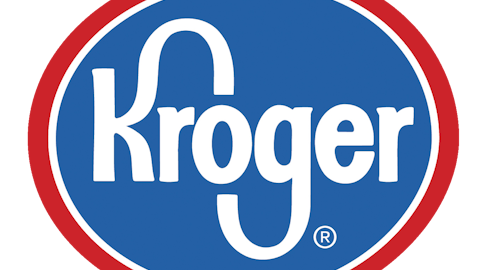
Wal-Mart Stores, Inc. (NYSE:WMT) has gotten as big as it has — it will likely do half a trillion in sales this year — because it’s very efficient at what it does. Part of that efficiency means keeping wages low. According to market research group IBSWorld, the average Wal-Mart Stores, Inc. (NYSE:WMT) sales associate earns $8.81 per hour.
The heat over Wal-Mart’s low wages turned up this month when Washington D.C.’s city council passed a bill requiring all new stores of at least 75,000 square feet and $1 billion in annual revenue to pay a “superminimum” wage of $12.50 per hour, up from the city’s standard $8.25 per-hour minimum wage. Existing employers are exempt for four years. Wal-Mart currently has no stores within D.C. city limits, so the bill effectively forces any D.C.-based Wal-Mart Stores, Inc. (NYSE:WMT) stores built in the next four years to pay a minimum wage 50% above its competitors.
Wal-Mart, which had plans to open six stores in D.C., balked. “We will not pursue Skyland, Capitol Gateway and New York Avenue and will start to review the financial and legal implications on the three stores already under construction,” spokesman Steven Restivo said. “This was a difficult decision for us — and unfortunate news for most D.C. residents — but the Council has forced our hand.”
Now the awkward moment: D.C.’s city council proposed the bill to help provide its residents with a living wage. But Wal-Mart Stores, Inc. (NYSE:WMT) — which said its six planned D.C. stores could have created 1,800 jobs — will now be providing no wages to D.C. residents.
The winner: nobody. Minimum wage, maximum frustration.
We still don’t know how this story will end. Wal-Mart could change its mind, or Mayor Vincent Gray could veto the bill. But this seems like a good time to discuss the merits of the minimum wage.
There are two sides to the minimum-wage debate. One says it prices low-skill workers out of the jobs market. That’s what Econ 101 tells us should happen, and it explains Wal-Mart’s experience in D.C.
The other side says these stories are anecdotal, that there’s little evidence of employment falling when minimum wages are increased. Wal-Mart Stores, Inc. (NYSE:WMT) very likely can pay a $12.50 minimum wage while covering its cost of capital, and retailers like Costco Wholesale Corporation (NASDAQ:COST) have shown that marginally higher wages can pay for themselves through lower employee turnover.
Each side has evidence to back up its arguments.
Economists Alan Krueger of Princeton and David Card of U.C. Berkeley looked at minimum-wage hikes in California in 1988 and New Jersey in 1992, and compared them to regions that didn’t raise wages. The pair found that “increases in the minimum wage lead to increases in pay, but no loss in jobs.”





